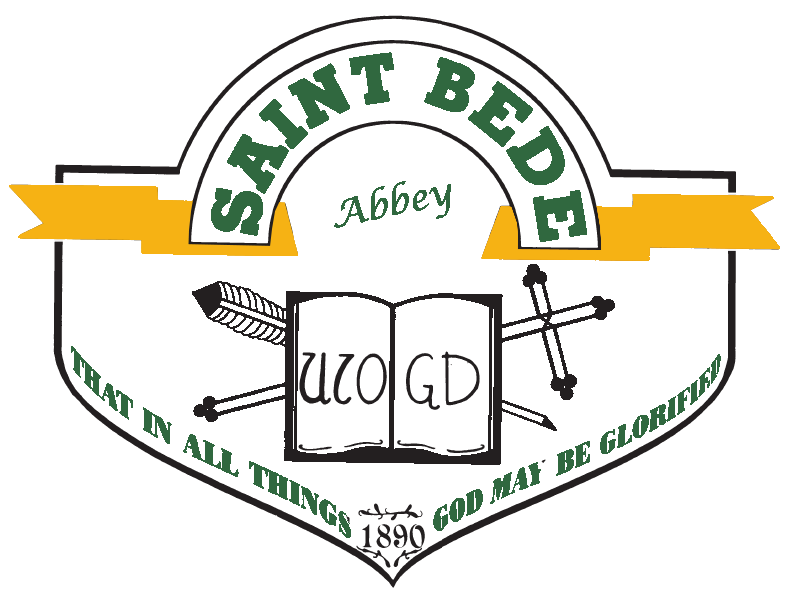Obituary
Father Stephen John Souse
BORN: PEORIA, ILLINOIS, NOV. 7, 1916
PROFESSED: JULY 2, 1937
ORDAINED: JUNE 13, 1943
DIED: JULY 23, 2010
We request your prayers for our deceased confrere, Father Stephen John Souse, the senior in age and profession of our community, who collapsed and died unexpectedly while on his way to vespers on Friday, July 23, 2010, in the ninety-fourth year of his age, the seventy-fourth of his profession, and the sixty-eighth of his priesthood. Born on November 7, 1916, Father Stephen was the oldest of four children born to Maronite parents in Peoria, Illinois after they had emigrated from Lebanon and here joined other citizens from the same village.
Because there was no Maronite parish in Peoria at that time, the children grew up and went to school in the Latin rite parish of St. Boniface, then staffed by Franciscan friars. After finishing public high school John came to St. Bede in 1934 for college, and two years later entered our community with the name Stephen, making his novitiate at St. Vincent Archabbey and his first profession in 1937, after he had canonically transferred to the Latin rite.
As was customary in those days, he completed all his philosophy and theology studies here at the abbey, and was ordained to the priesthood in the Peoria cathedral in 1943. After ordination he was sent to the Catholic University of America to study Sacred Scripture. There he earned the required licentiate in theology in 1945, but was called back to the abbey before he could proceed further with more specialized biblical studies.
During the next few years Father Stephen was assigned for relatively brief periods first to St. Francis Parish in Ottawa and then to St. Joseph Parish in Chicago to assist elderly pastors during times of illness. In 1947 he was sent to Spalding Institute in Peoria, which was then staffed by our monks, and he served there until our community withdrew from that high school in 1950.
All the remaining sixty years of his long life were spent at the abbey, where he quietly and unobtrusively fulfilled a variety of services for the community and for our academy. In the early years he taught Sacred Scripture in our school of theology, and was quite regularly assigned to priestly ministry in nearby parishes, both for weekend assistance and for daily Masses for as long as we still provided that service. But after some health problems emerged, his contributions were confined to the monastery itself.
Since 1968 he had been the stipendarius who handled all requests for Masses and arranged for them to be offered as specified by the donors. He became community barber already in the 1930’s and, while sharing this duty with others in subsequent years, he had done it alone for the past two decades. For longer than anyone can remember he distributed the mail to both the academy and the abbey, and saw that newspapers reached their proper destinations. A horticultural enthusiast, he regularly cared for the numerous plants in our refectory, chapter room, corridors, and landings of staircases.
Though he once taught typing, his work in our school for the past forty years was mostly as registrar in the academy office. In recent decades the various operations concerned with student records, grades, transcripts, and reports to parents have gradually become computerized, but it is only within the past year that the last of his functions was eliminated. He was no admirer of modern technology, though he seems to have made an exception for the copy machine, over which he exercised paternal supervision for a long period. His principal tool, until it became obsolete, was the manual typewriter, on which he continuously produced vast quantities of careful, errorless typing, including witty and often acerbic commentaries on current affairs in the community and in the Church.
Throughout his life Father Stephen adhered to the daily monastic horarium and to his assignments with a quiet, usually wordless regularity, so dependable that one could almost set his watch by his movements.
We are grateful for the suffrages that you will offer for our deceased confrere, and we promise faithful remembrance of your deceased.
Abbot Claude and community

